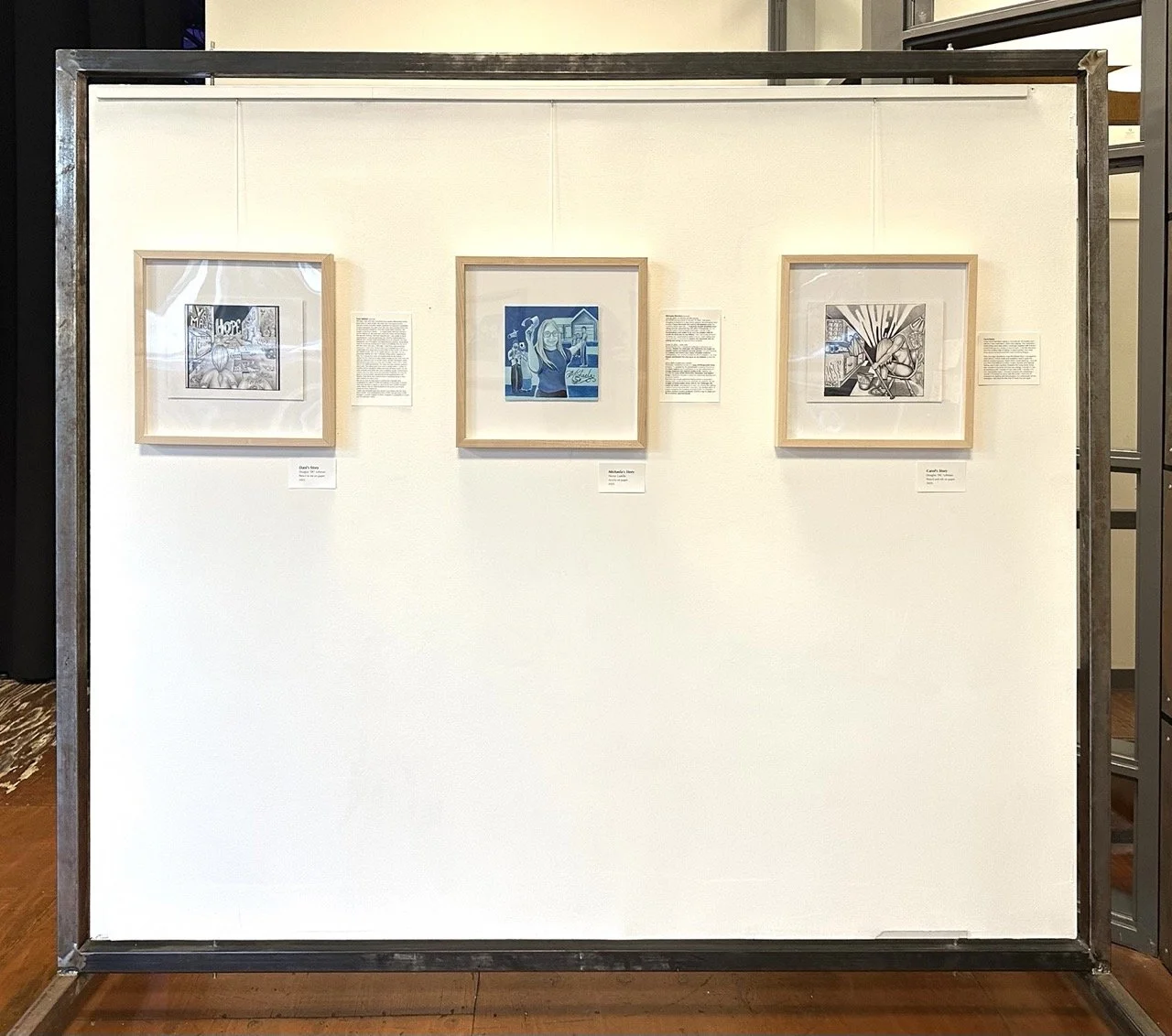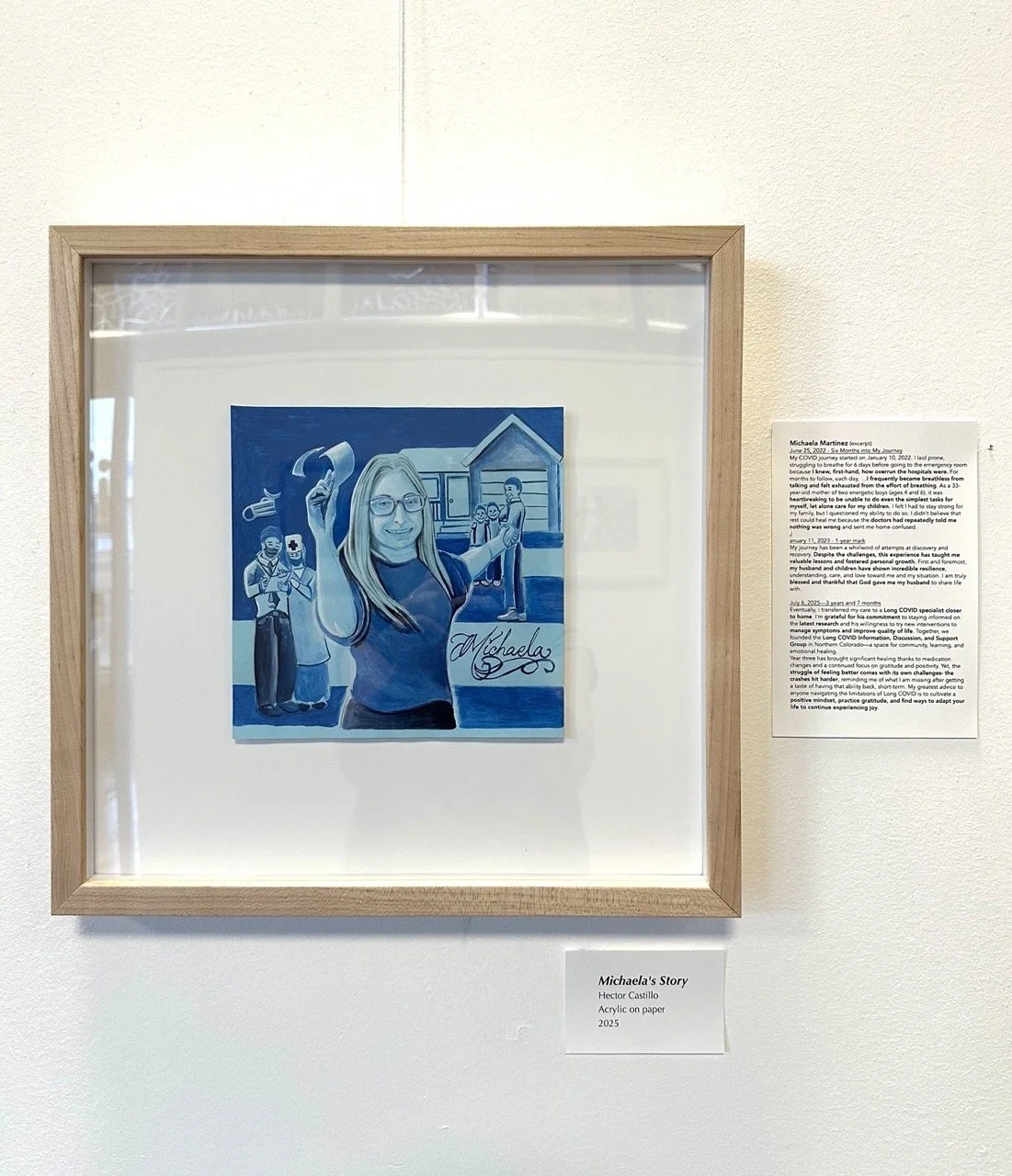Michaela Martinez
**June 25, 2022 - Six Months into My Journey**
My COVID journey started on January 10, 2022. My shortness of breath escalated to the point where it limited my ability to move. I struggled to dress myself, take a shower, walk to the bathroom, change positions in bed, and perform other basic tasks. As a 33-year-old mother of two energetic boys (age 4 and 6), it was heartbreaking to be unable to do even the simplest tasks for myself, let alone care for my children.
I laid prone (position to relieve breathing effort), struggling to breathe for 6 days before going to the emergency room because I knew, first-hand, how overrun the hospitals were with patients due to the current COVID surge. In my work, when I wasn’t educating new employees, I was running between the short-staffed units to help provide patient care because the influx of patients inside the facilities was exhausting the available staff resources. In the days leading up to my visit to the Emergency Room, I prepared for the worst. I made sure my sister knew where to find my Living Will and Power of Attorney paperwork and informed her of the benefits she needed to help my husband access in case something happened to me. I reminded my husband where I kept all the logins and passwords in case, he needed to access any accounts I usually managed. I accomplished all this while helplessly lying prone on my living room floor, grateful that I had things in order before this crisis arose. My emergency room experience was just the first bump in my long journey to heal from COVID. Having worked in healthcare for 15 years, I found myself lying on an ER gurney, unable to advocate for myself as I had for others as their nurse. I felt alone (they did not let my husband in the ER room with me), hopeless, and in tears. To my dismay, the ER nurse asked me why I stopped when making me walk to my ER room, gasping for air, and the ER doctor told me, "COVID sucks, and you're asthmatic. I’m not sure what your expectations were for coming here." This was a clear indication of an overwhelmed and burned-out healthcare system.
For months to follow, each day, I used my nebulizer on the drive to work, and then I often needed to tripod (posture used to help ease breathing effort) upon arriving at my office to recover from the walk into the building. Throughout the day, I frequently became breathless from talking and felt exhausted from the effort of breathing. I received multiple doses of antibiotics and steroids (once a month for six months), which caused such unrelenting bone pain that I would cry myself to sleep. Yet, each morning, I would wake up, get my children ready for school and daycare, and start my drive to work. I listened to Christian music during my commute, but I began to question my faith. I previously would sing along to the music, but I could no longer do so and wondered why God would take my voice away, especially when I wanted to use it to sing worship music. I often cried during my commutes to avoid showing my emotions in front of my children and my already stressed husband. I felt I had to stay strong for my family, but I questioned my ability to do so. I scheduled a virtual appointment with my primary doctor to discuss additional ways to help, as I recognized that my current situation was not sustainable. My primary care physician, with whom I had previously had a great relationship, masked my debilitating symptoms with a diagnosis she was also unwilling to treat. I felt defeated, stuck, alone, and even crazy. I began to question myself, my ability to get better, and whether anyone in healthcare is willing to help me.
Meanwhile, my husband managed to juggle going to work, caring for the kids, making dinners, grocery shopping, cleaning the house, acting as my therapist, coaching me, transporting me to appointments, and staying positive throughout the entire time. He never asked for help, and help was never offered to him. He took on this situation with everything he had, making the outside world think everything was ok, but it was falling apart at the seams. My husband saw me at my worst. I would have breathing attacks from simple tasks like trying to lift the trash bag out of the trash can, trying to lift the laundry detergent, or folding laundry. He watched, feeling helpless, as I would do a nebulizer treatment with no relief and then cry (as much as I could because crying takes exertion) because I still couldn’t breathe. He would rub my ankles, wrists, and neck when my bones hurt so badly, I couldn’t get comfortable. I would often lie in my room, feeling miserable, while listening to him gently explain to our children that Mommy didn’t feel well and needed to rest. I cried—feeling hopeless, out of control, and like I was letting my family down. Those overwhelming emotions pushed me to tell myself that I was the one holding myself back and that I needed to get up and push through. I didn’t believe that rest could heal me because the doctors had repeatedly told me nothing was wrong and sent me home confused.
(January 11, 2023 - 1-year mark)
My journey has been a whirlwind of attempts at discovery and recovery. As a patient, part of my frustration has stemmed from tests showing normal results while I felt anything but normal. Despite the challenges, this experience has taught me valuable lessons and fostered personal growth. First and foremost, my husband and children have shown incredible resilience, understanding, care, and love toward me and my situation. I am truly blessed and thankful that God gave me my husband to share life with. I would not be where I am in my recovery without him. He understands my need for rest, respects my limitations, and advocates for me, often better than I can for myself.
One of the biggest lessons I've learned is that asking someone who is struggling, “Is there anything I can do for you?” can often feel like an empty offer. When someone is overwhelmed, they may lack the mental capacity to think about what they need. Instead, that person benefits from specific suggestions on how to help, such as bringing food, cleaning the house, picking up medications, providing rides to appointments, or simply offering an ear or shoulder to cry on.
(July 6, 2025—3 years and 7 months)
Reflecting on this time, I am especially grateful for the few physicians who genuinely cared for me. They took the time to review my case, listened to my symptoms, and offered ideas or treatments. When uncertain, they admitted it, rather than making me feel like my symptoms were imaginary.
The first Long COVID physician I consulted provided me with referrals for physical therapy and ENT. She followed up on CT scans and provided care during gaps between visits with other providers. The ENT doctor referred me to voice therapy, which gave me knowledge on voice rest and training. My asthma specialist never gave up, believed me, and treated my symptoms, not the test results. I felt my first significant improvement came with treatment from my physical therapist. She provided resources on energy conservation/pacing, continued research to stay current, and followed up with me outside of appointments. She also informed me of the importance of emotional health in healing.
While each month has brought its own form of gratitude or improvement, I still experience daily frustrations related to the grief of losing my identity. I grieve the lost time with my children during the younger years. Before I got sick, I was able to tickle, dress, carry them around the house, dance with them, plan interactive birthday parties, and take them to fun activities. After falling ill, even simple outings became daunting. I couldn’t speak loud enough to call my children back or to say no, pick them up if they were hurt or refused to come with me, and I could no longer chase them around to ensure their safety. Hosting parties or playdates became impossible because I could barely care for myself, let alone other children. I was unable to volunteer at their school or accompany them on field trips. I could no longer be the one to cuddle them in their beds when they felt unwell, like a mother should. Exercise, once my outlet for stress relief, was no longer an option. I avoided committing to invitations because I never knew how I would feel and had to worry about whether anyone at the gathering was sick, along with concerns about parking and walking distances once there.
I have silently grieved the loss of socialization and the spontaneity of accepting invitations. I have built up frustrations from those around me who never took the time to understand how difficult this was but judged me for it and made me feel irrational when I would say no. I long for the ability to travel and create experiences for my kids beyond road trips. I carry the weight of the stress I cause my husband during our outings, when he must push me in a wheelchair, carry all the luggage, and sometimes take the kids on adventures while I stay in the room feeling unwell.
I found ways to adapt my life to help me still feel functional and have a purpose. I changed paddleboarding to boating, I started to do grocery pickup or delivery to help with grocery shopping, I found more board games for the kids to play with me in place of playing sports together, and I purchased an electric scooter to replace my bike for rides with my boys. I used YouTube read-alouds for bedtime stories and I learned to accept help when asked if someone could clean my house or take my boys to a party that I did not feel well enough to take them to.
My husband has been my unwavering support, recognizing my progress and cheering me on throughout the milestones I have met. Eventually, I transferred my care to a Long COVID specialist closer to home. I’m grateful for his commitment to staying informed on the latest research and his willingness to try new interventions to manage symptoms and improve quality of life. Together, we founded the Long COVID Information, Discussion, and Support Group in Northern Colorado—a space for community, learning, and emotional healing. Creating this group gave my journey purpose and helped fill a gap in my care.
Year three has brought significant healing thanks to medication changes and a continued focus on gratitude and positivity. I am now able to reintroduce tasks that I previously could not handle. Yet, the struggle of feeling better comes with its own challenges- the crashes hit harder, reminding me of what I am missing after getting a taste of having that ability back, short-term. While I continue to grieve the lingering limitations, I quickly refocus my attention on the improvements I have made and the abilities I possess rather than what I cannot do. My greatest advice to anyone navigating the limitations of Long COVID is to cultivate a positive mindset, practice gratitude, and find ways to adapt your life to continue experiencing joy. Grief may never fully disappear, but a growth mindset can lessen its weight and support the healing process.



Michaela Martinez is a Long COVID sufferer and the cofounder of the Long COVID Information, Discussion, and Support Group, where she advocates for awareness, connection, credible information sharing and healing through shared experience. A devoted mother of two boys and a Master’s in Health Care Administration student graduating in February 2026, Michaela brings both personal and professional insight to her work. With 19 years in her healthcare system, she continues to champion compassionate care and education for those navigating chronic illness.
